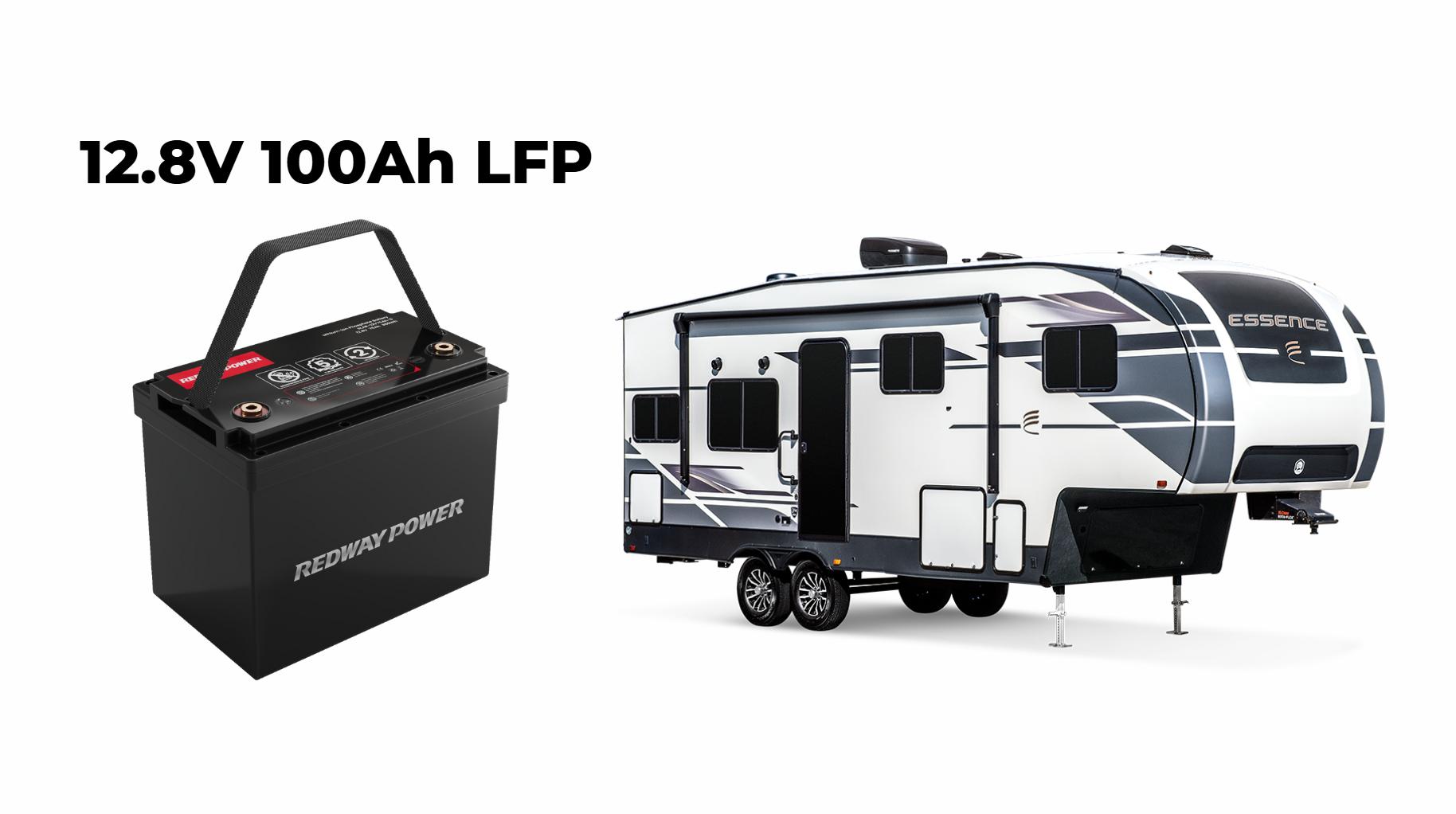When selecting a lithium battery for your RV, safety should be your top priority. Lithium batteries, particularly Lithium Iron Phosphate (LiFePO4) batteries, are gaining popularity due to their efficiency and longevity. However, it is crucial to understand the key safety features that distinguish a reliable battery from a potentially hazardous one. This guide outlines the essential safety features to consider when choosing an RV lithium battery.
When choosing an RV lithium battery, look for a reliable Battery Management System (BMS) that prevents overcharging. Ensure it has enough capacity for your needs and is lightweight. Check its temperature tolerance and cycle life to ensure long-lasting performance. These features help keep your RV safe and powered efficiently.
1. Integrated Battery Management System (BMS)
One of the most important features to look for is a built-in Battery Management System (BMS). A robust BMS regulates voltage, current, and temperature, preventing overcharging, deep discharging, and overheating. Key functions of a BMS include:
- Cell Balancing: Ensures that all cells within the battery are charged equally, extending battery life and maintaining performance.
- Overvoltage Protection: Prevents the battery from exceeding safe voltage levels during charging.
- Undervoltage Protection: Shuts down the battery if it reaches a critically low voltage to prevent damage.
- Overcurrent Protection: Protects the battery from excessive current draw that can lead to overheating or failure.
2. Thermal Management System
Lithium batteries are sensitive to temperature extremes. A good thermal management system is essential to ensure safe operation. This may include:
- Cooling Mechanisms: Active cooling systems can help maintain optimal temperature during charging and discharging.
- Heat Shields: Insulation and heat shields can protect the battery from external heat sources, minimizing the risk of overheating.
3. High-Quality Construction Materials
The construction of the battery casing significantly impacts its durability and safety. Look for batteries made from:
- Fire-Resistant Materials: Casing materials that can withstand high temperatures and are resistant to combustion.
- Robust Design: A well-designed battery that can withstand vibrations and shocks commonly experienced in RV travel.
4. Short-Circuit Protection
A reliable lithium battery should have built-in short-circuit protection. This feature disconnects the battery from the load in the event of a short circuit, preventing damage to both the battery and connected devices.
5. Overcharge and Over-discharge Protection
To enhance safety, lithium batteries should include features to prevent overcharging and over-discharging:
- Overcharge Protection: Automatically disconnects the charger once the battery reaches full capacity, preventing potential swelling or leakage.
- Over-discharge Protection: Prevents the battery from discharging beyond a safe level, which can lead to cell damage and reduced lifespan.
6. Safety Certifications
Always check for safety certifications from recognized standards organizations, such as:
- UL (Underwriters Laboratories): Ensures the battery meets rigorous safety and performance standards.
- CE (Conformité Européenne): Indicates compliance with EU safety regulations.
7. Warranty and Support
A strong warranty can be a good indicator of a manufacturer’s confidence in their product. Look for batteries that offer:
- Extended Warranty: Coverage that lasts several years, reflecting the durability and reliability of the battery.
- Customer Support: Access to technical support and service should any issues arise.
8. Reviews and Recommendations
Before making a purchase, it is wise to read customer reviews and recommendations. Look for:
- User Experiences: Insights from fellow RV owners regarding the battery’s performance and reliability.
- Expert Reviews: Articles or videos from reputable sources that evaluate the safety features and overall quality of the battery.
Conclusion
Choosing the right lithium battery for your RV involves careful consideration of safety features. By focusing on batteries with a robust Battery Management System, effective thermal management, high-quality construction, and proper safety certifications, you can ensure a safe and efficient power solution for your travels. Always prioritize safety to enjoy peace of mind on the road.
Latest News
- Safety Innovations: Recent advancements in RV lithium batteries emphasize enhanced safety features such as built-in Battery Management Systems (BMS) that prevent overcharging and overheating.
- Consumer Awareness: There is a growing emphasis on understanding safety certifications and standards when selecting lithium batteries for RV use.
- Market Trends: Manufacturers are increasingly focusing on developing batteries with robust safety features to meet consumer demand.
Redway Expert Comment
“When selecting an RV lithium battery, safety should be a top priority. Look for features like a reliable Battery Management System (BMS) that protects against overcharging, short circuits, and thermal runaway. Additionally, check for safety certifications that ensure compliance with industry standards. As an expert in Lithium LiFePO4 technology, I cannot stress enough the importance of investing in batteries that prioritize safety alongside performance.”




